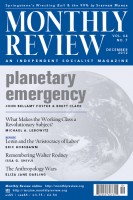
Striking Chicago teachers rally, October 2012.
By Dan La Botz
December 31, 2012 -- New Politics -- The most important social conflict in the United States in 2012—the Chicago Teachers Union strike—suggests that the rising trajectory of social struggle in the United States that began at the beginning of 2011 may be continuing. While the United States has a much lower level of class struggle and social struggle than virtually any other industrial nation—few US workers are unionised (only 11.8%) and unionised workers engage in few strikes and those involve a very small numbers of workers—still, the economic crisis and the demand for austerity by both major political parties, Republican and Democrat, have led to increased economic and political activity and resistance by trade unions, particularly in the public sector.[1]








